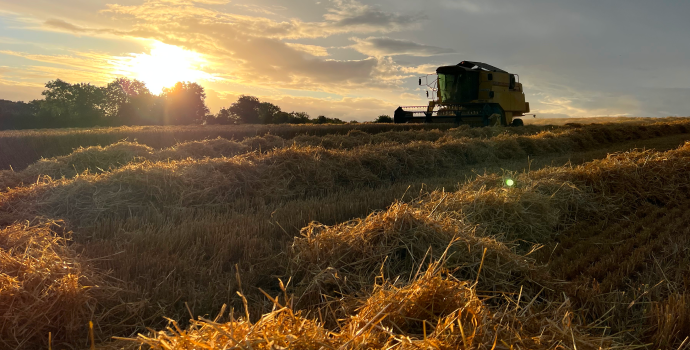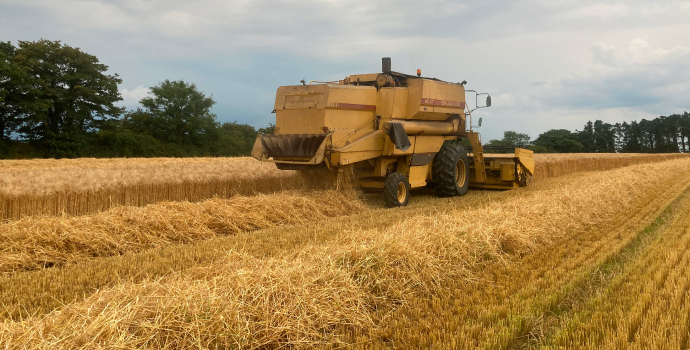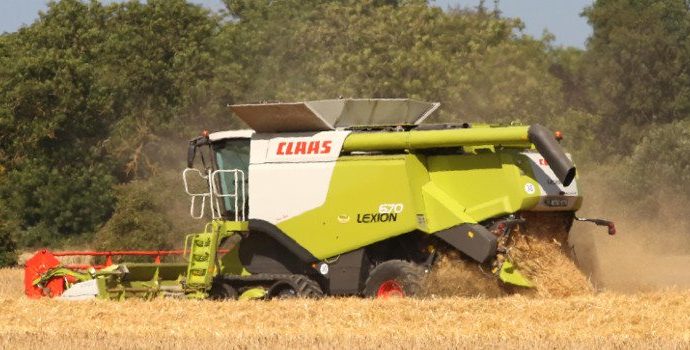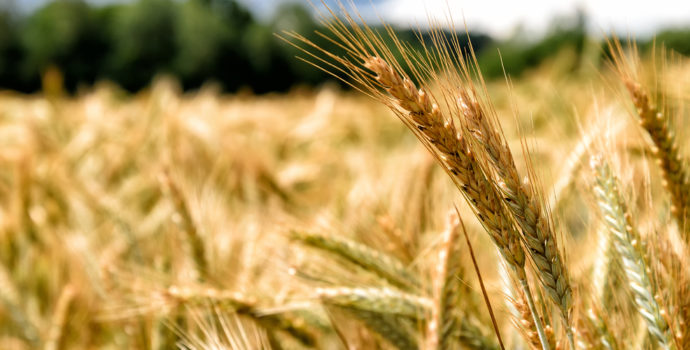Grain Council Report May 2020
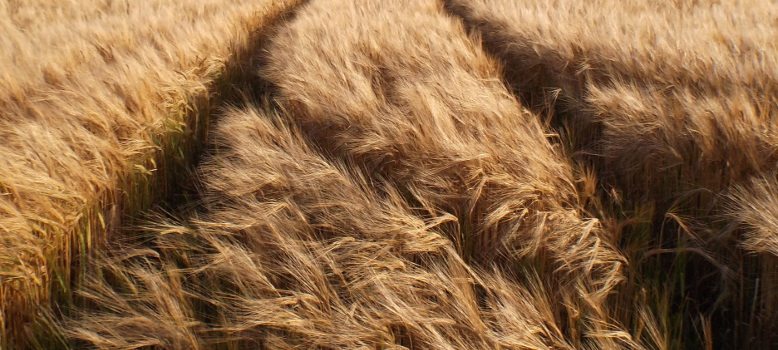
Domestic Market
Due to the continuation of the dry weather, feed demand has remained strong considering the time of year. If this dry spell continues, we will see an increase in the demand for supplementary feed as grass growth is adversely affected. The weather is beginning to have an effect on crops, with rainfall figures in areas of the midlands and east at record low levels for March and April. Parts of north Dublin have only received 45mm of rain in March and April and 4mm so far in May. This area would typically receive 160mm on average over these three months. At this stage rainfall amounts are actually lower than the bad drought year of 2018, however, on the plus side, crops were planted earlier this season and are better established than two years ago.
The figures on 2020 cereal plantings will soon be available from DAFM. They should show a cropping area for the main cereals of approximately 260,000 ha which would be similar to last season. In general, the reduction in Winter cropping area has been replaced by Spring crops. The combination of some poor Winter crops; the increased ratio of Spring crops and the possibility of an impending drought could see the production tonnage dropping below 2 million tonnes versus the 2.35 million figures in 2019.
While a considerable amount of barley remains in store, the stocks are lower than last year. IFA Grain Committee Chairman Mark Browne has called on feed mills to use Irish grains as feed merchants are now producing rations which contain little or no Irish grain and have replaced it with maize grain from non-EU sources.
The FOB Creil malting barley average price remains at €168/t. The plantings of malting barley have increased across the EU this season however some of this area increase has been mitigated due to the possibility of lower yields due to the dry conditions.
Irish Native / Import Dried Feed Prices 15/05/2020
| Spot €/t | Nov 2020 €/t | |
| Wheat | 198-202 | 190 |
| Feed Barley | 167-170 | 164 -168 |
| FOB Creil Malting Barley | 168 | |
| Oats | 160 | 160 |
| OSR | 360 | 360 |
| Maize (Import) | 180 | 173 |
| Soymeal (Import) | 348 | 340 |
International Markets
The wheat market reacted negatively to last week’s USDA’s report on the global wheat market outlook. They expect global wheat stocks at the end of the 2020/21 marketing year will rise to a record-large 310 million tonnes, up from 295 million at the end of 2019/20. However, these projections are based on best case scenarios and obviously weather could still play a part. The gap in prices between wheat and maize/barley is also significant and this could prove bearish for the crop. In relation to market positives, although parts of the Europe and the Black seas regions have received much needed moisture this may have been too little too late. In addition, exports of wheat from Europe have again been revised upwards which will leave less carryover stock going into the new season.
The USDA report proved somewhat benign for maize which is a slight positive. US maize prices are at historic lows due to the drop in ethanol demand and the prospects of record US plantings. However, prices have stabilised and market ending stocks are lower than predicted in the previous report with expectations of increased Chinese imports. Some market commentators predict US maize plantings to be lower than the governments figures and with ethanol demand picking up as economies reopen there is some optimism in the market.
In the soybean market, the USDA report was considered supportive with US production, US 2020/21 ending stocks and global ending stocks coming in below trade estimates. The increase in Chinese purchases is also seen as a positive for the market. Soymeal prices have continued to decline as world supply chains have returned to normal. As biofuel use begins to rise again rapeseed futures have remained strong. With EU rapeseed production predicted to be at historic lows of 17million tonnes, and with the EU’s main importer Ukraine also predicting lower production, spot prices should remain strong for the foreseeable future.
Activity Since Last National Council
- Covid 19 has continued to have a severe impact on the tillage sector, particularly on the feed and malting barley sectors. IFA has written to Minister Creed asking him to introduce the following:
- The recently adopted EU Temporary Framework for state aid must be immediately utilised to support farmers with direct payments for any price related market losses.
- It has been confirmed that Tillage farmers can access credit/finance through the Credit Guarantee Scheme, however this initiative must be at a lower rate than previous schemes and applicable to the sector.
- Introduce a maximum quota regarding the importation of maize from third world countries, such as Brazil, into Ireland.
- In relation to the phased reduction of government restrictions, the reopening of pubs and bars should be considered in Phase 3 (29th June) of the roadmap, in tandem with restaurants and cafes. Of course, this can only happen if all protocols regarding social distancing, hygiene etc are followed.
- The recent decision by the NPWS to disallow the shooting of wood pigeons during the months of June, July and August was a serious issue for the tillage sector. IFA organised a meeting with the NPWS and subsequently sent a submission to the NPWS on the issue with the purpose of getting the decision overturned.https://www.ifa.ie/wp-content/uploads/2020/05/Wood-Pidgeon-Derogation.pdf. On the foot of the IFA intervention the minister Josepha Madigan has decided to reverse the decision and farmers can continue to control wood pigeons throughout the year.
- IFA has continued it’s campaign on the use of native grains. The IFA Grain Committee Chairman Mark Browne has called on feed mills to use Irish grains. Some feed merchants are now producing rations which contain little or no Irish grain and have replaced it with maize grain from non-EU sources.
- In a recent meeting with Tara McCarthy CEO of Bord Bia, the grain chairman emphasised that Bord Bia must include the use of local and sustainable feed ingredients in any current and proposed farm sustainability schemes.
- IFA has met with DAFM regarding the re authorisation of a number of vital PPP’s such as mancozeb. There is also ongoing work involving a series of meetings regarding emergency derogation on a number of products and the registration of new active ingredients.
- The malting barley committee has been in discussions with the malting companies regarding maximising the intake of malting barley this harvest despite the difficulties in the drinks sector due to the closure of pubs and restaurants. In addition to these meetings the committee has undertaken the following actions:
- IFA has sought legal advice regarding claiming a force majeure in relation to the malting barley contracts
- Meetings were arranged with representatives from Diageo and Heineken directly to discuss the issues
- IFA has raised the issues with Drinks Ireland
- The IFA president Tim Cullinan has written to the Boortmalt CEO requesting a meeting.
EU/COPA developments
- IFA, along with Copa.Cogeca, is lobbying in Brussels regarding the re authorisation of a number of vital PPP’s such as mancozeb. There is also ongoing work involving a series of meetings regarding emergency derogation on a number of products and the registration of new active ingredients.
- IFA will continue the campaign in relation to an increased CAP budget.
- IFA will continue its campaign to ensure that the proposed Green Deal (Farm to Fork & Biodiversity strategies) will not have a negative effect on the grain sector.
- The Grain Chairman Mark Browne raised the issue of imports of third country maize at the last Copa meeting of the Phytosanitary committee.
Upcoming Issues/Events
- IFA will continue to demand direct financial aid for the tillage sectors most affected by the Covid 19 pandemic.
- CAP 2020 continues to be a major issue for the viability of the Grain sector and the Grain Committee will be working on this in the coming months.
- IFA is continuing to work on a labelling standard regarding the inclusion of native grains and will continue its campaign on greater inclusion of native grains in feed rations.
- There are still high barley stocks in parts of the country and if maize continues to be imported while these barley stocks remain than the Grain Committee will have to take action on this.
| Chairman | Mark Browne |
| Executive | Patrick Farrell |


